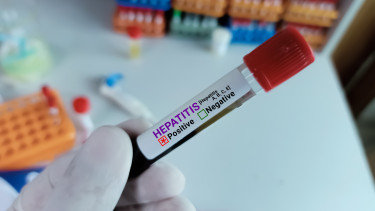EMA and Commission authorise second COVID-19 vaccine

Europe has secured up to two billion doses of potential COVID-19 vaccines. We'll have more than enough safe and effective vaccines for protecting all Europeans
, commented President of the European Commission, Ursula von der Leyen.
Moderna, with whom the Commission signed a contract on 25 November, will deliver the total amount of 160 million doses between the first and the third quarters of 2021.
It will add to the 300 million doses of the vaccine distributed by BioNTech/Pfizer, the first vaccine to have been authorised in the EU on 21 December 2020.
A key difference between the vaccines of the two producers is that BioNTech/Pfizer's vaccine needs to be stored in ultracold storage (-70 degrees Celsius or -94 degrees Fahrenheit), while Moderna remains stable at -20 degrees Celsius or -4 degrees Fahrenheit for up to six months.
“As for all medicines, we will closely monitor data on the safety and effectiveness of the vaccine to ensure ongoing protection of the EU public. Our work will always be guided by the scientific evidence and our commitment to safeguard the health of EU citizens,” said Emer Cooke, Executive Director of EMA.
A very large clinical trial showed that COVID-19 Vaccine Moderna was effective at preventing COVID-19 in people from 18 years of age.
The trial involved around 30,000 people in total. Half received the vaccine and half were given dummy injections. People did not know whether they received the vaccine or the dummy injections.
Efficacy was calculated in around 28,000 people from 18 to 94 years of age who had no sign of previous infection.
The trial showed a 94.1% reduction in the number of symptomatic COVID-19 cases
in the people who received the vaccine (11 out of 14,134 vaccinated people got COVID-19 with symptoms) compared with people who received dummy injections (185 out of 14,073 people who received dummy injections got COVID-19 with symptoms). This means that the vaccine demonstrated a 94.1% efficacy in the trial.
The trial also showed 90.9% efficacy in participants at risk of severe COVID-19, including those with chronic lung disease, heart disease, obesity, liver disease, diabetes or HIV infection. The high efficacy was also maintained across genders, racial and ethnic groups.
COVID-19 Vaccine Moderna is given as two injections into the arm, 28 days apart.
The most common side effects with COVID-19 Vaccine Moderna were usually mild or moderate and got better within a few days after vaccination. The most common side effects are pain and swelling at the injection site, tiredness, chills, fever, swollen or tender lymph nodes under the arm, headache, muscle and joint pain, nausea and vomiting.
The safety and effectiveness of the vaccine will continue to be monitored as it is used across the EU, through the EU pharmacovigilance system and additional studies by the company and by European authorities.
How COVID-19 Vaccine Moderna works
COVID-19 Vaccine Moderna works by preparing the body to defend itself against COVID-19. It contains a molecule called messenger RNA (mRNA) which has instructions for making the spike protein. This is a protein on the surface of the SARS-CoV-2 virus which the virus needs to enter the body’s cells.
The active substance is mRNA encoding the SARS-CoV-2 Spike protein embedded in lipid nanoparticles and it is given by intramuscular route.
When a person is given the vaccine, some of their cells will read the mRNA instructions and temporarily produce the spike protein. The person’s immune system will then recognise this protein as foreign and produce antibodies and activate T cells (white blood cells) to attack it.
If, later on, the person comes into contact with SARS-CoV-2 virus, their immune system will recognise it and be ready to defend the body against it.
The mRNA from the vaccine does not stay in the body but is broken down shortly after vaccination.
Cover photo: Getty Images











